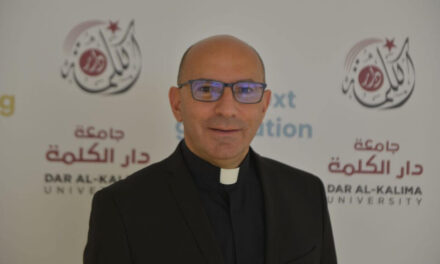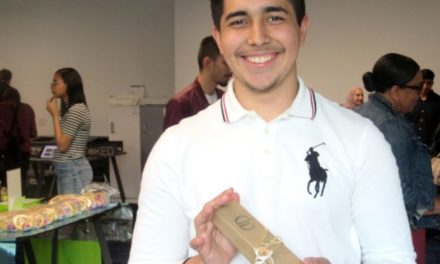In the United States, it is estimated that there are currently 350-450 full-time Islamic schools with an enrollment of nearly 100,000 Muslim students according to the Islamic Schools League of America. These schools have come a long way from their modest beginnings when some operated in the basements of homes or mosques, and the administrative and teaching staff often lacked pedagogical or administrative training in education.
Today, Islamic schools in the United States demonstrate many indicators of excellence and success including owning and operating school buildings, employing certified teachers with degrees in education, and graduating huffaz (Quranic experts) and students who gain admittance into Ivy League universities.
Parents may choose to enroll their children in an Islamic school for a variety of reasons including concerns that the curriculum being taught in public schools is counter to their Islamic beliefs, values, and practices. Others may choose Islamic schools because they provide a temporary solace from the racism, xenophobia, and Islamophobia festering in broader society. Other parents may choose Islamic schools because they hope these schools provide a holistic education grounded in a uniquely Islamic worldview.
While congregational prayers and classes in Islamic Studies, Arabic, and the Quran are staples in almost every Islamic school, one element that is less common is curriculum that is grounded in Islamic epistemology. One such gap is within the biosciences where the topic of human evolution serves as a central organizing theme. Muslim teachers within Islamic schools often grapple with finding the appropriate methods to teach this specific subject.
With support from the John Templeton Foundation, Aasim I. Padela, MD, MSc, FACEP, founder and president of the Initiative on Islam and Medicine, and professor of Emergency Medicine, Bioethics and Medical Humanities at Medical College of Wisconsin, teamed up with experts in theology, bioscience, and education to address this gap by designing and implementing an intensive new course for Muslim high school and college students. The result was a novel curriculum titled, “Exploring Bioscience and Islam: A Curriculum on Fundamental Questions about the Human Being,” which was designed with a focus on an Islamic worldview and is now accessible free online.
What is an Islamic Worldview?
An Islamic worldview rooted in the Quran and Sunnah offers a holistic approach to knowledge. It integrates spirituality, philosophy, and the unseen alongside empirical science.
According to Omar Qureshi, Ph.D., director of Integrated Curriculum at Yaqeen Institute, a “worldview, in a simple sense, describes the way in which we see reality… understand it and live within it.” An ordered set of propositions about life’s most important questions helps us understand what constitutes a worldview. He mentions several key questions for which a worldview provides answers:
- What is a human being?
- What is the origin of a human being?
- Where did I come from?
- Where am I going?
- How can I know what is right and wrong?
- How is it possible to know anything at all?
Epistemology is a key part of a worldview. It is an area of study that explores knowledge and truth, asking, “How do we know what we know?” Although teachers and students may not be aware of it, a secular worldview and epistemology undergird most of their learning pursuits, whether in Art, Social Studies, English, or Science class.
In bioscience, a secular epistemology is based almost solely on empirical knowledge, knowledge that is either observable with the five senses or can be proven with experimentation. Islamic epistemology is more expansive, embracing empirical, rational, and revelatory sources of knowledge. It also includes an exploration of natural and supernatural phenomena, ensuring that knowledge aligns with divine truth, moral purpose, and human well-being. This contrasts with secular methods of bioscience instruction in which value neutrality is seen as the gold standard for all scientific pursuits.
An Islamic epistemological framework serves as the foundational theme of this new curriculum ensuring coherence, depth, and inquiry in aid of strengthening Muslim students’ faith and identity. Because Islamic epistemology embraces plurality rather than absolute truths, the new curriculum encourages students to engage in critical inquiry thereby learning to navigate scientific uncertainties. It helps students cultivate a more nuanced understanding of Islam and science together while fostering critical thinking skills. This approach fosters a mindset in Muslim students that is intellectually rigorous while at the same time being open to the complexities of scientific and theological discourse.
The Exploring Bioscience and Islam Curriculum
“Exploring Bioscience and Islam” brought together experts in bioscience, education, and Islamic theology to address some of humanity’s most pressing questions. The curricular design team was multi-institutional and multidisciplinary including members from the Medical College of Wisconsin, the Initiative on Islam and Medicine, the Islamic Schools League of America, the International Islamic University of Malaysia, Habeeb Quadri’s High Quality Education Consulting, and Darul Qasim College.
Importantly, this curriculum is accessible for free online complete with downloadable resources. It is designed to equip students with the capacity to analyze perceived conflicts between religious and bioscientific claims, foster interest and preparedness for deeper engagement in these discussions, and shift attitudes away from any notion of an inherent conflict between Islam and science.
The 20-hour curriculum covers five “Big Questions” about human beings and comprises six seminar topics delivered through a multi-modal approach:
- What Do We Know and How Do We Know It? Reasoning Exercises in Islam and Science
- How Did Human Beings Come About? Evolution and God’s Special Creation
- What Does It Mean to Be a Human? Neuroscience, Artificial Intelligence, and the Soul
- Human Enhancement and Transhumanism: Are We Changing, or Should We Change Our Being?
- Are We Programmed or Do We Have Free Will? Discussions on Fate and Genetic Determinism
- Are Human Beings Unique in This Universe? Science and Theological Inquiry about Extraterrestrial Life
A pairing of experts in both bioscience and theology have joined forces to teach these seminar topics, each with dual training and experience teaching with this interface. All seminar instructors employed a multi-modality teaching strategy to cater to diverse learning styles, incorporating didactics, interactive discussions, games, case studies, and model dialogues. The curriculum was then piloted among high school and pre-university Muslim students in two countries. Along the way, the team’s pedagogical experts refined the syllabus to improve student engagement and learning experiences.
Research-Backed Benefits
Part of the process of developing the curricular resources included field testing the material with students in the U.S. and Malaysia. 50 high school students from five different Islamic schools in Chicago and Milwaukee, and 190 pre-university students from the Center for Foundation Studies at the International Islamic University in Malaysia participated in seminars taught by the bioscientist-theologian team.
Results from pre- and post-seminar assessments showed a substantial improvement in student knowledge, interest, preparedness, and intention to pursue further learning opportunities.
- knowledge: 12.1 at baseline to 18.1 post-seminar (p<0.01)
- interest: 11.4 at baseline to 11.8 post-seminar (p<0.05)
- preparedness: 10.4 at baseline to 13.4 post-seminar (p<0.05)
- intention: 19.6 at baseline to 20.9 post-seminar (p<0.05)
Further, qualitative data was also collected in the form of reflective essays. In these essays, participants described their learning experiences as transformative and students reported gaining critical thinking and communication skills and values such as altruism, integrity, and religious connection. Most importantly, students developed a more nuanced and mature understanding of the relationship between science and Islam, moving beyond simplistic views. As one student put it, “The seminar series has had a profound impact … It has sparked passion in me to examine how science and faith interact.”
The results of the pre- and post- seminar survey have been published in the International Journal of Science Education under the title “Tackling ‘Big’ questions at the bioscience-Islam interface: reporting on the efficacy of an educational programme designed for Muslim high school students.”
So far, the curriculum has been introduced to school leaders, department heads, religious scholars, and teachers through two webinars and virtual professional development workshops hosted by the Islamic Schools League of America. These demonstrations have attracted a global audience including educators from the United States, Pakistan, Malaysia, and Australia. An upcoming in-person workshop in Malaysia in collaboration with the International Islamic University of Malaysia will further strengthen this initiative. Schools in Pakistan have also expressed enthusiasm for receiving training and adopting the curriculum.
The Next Phase of Islamic Education in America
This project demonstrates that when a curriculum is intentionally developed with an Islamic worldview as its foundation, it can become more than just an educational resource. It becomes a transformative framework that equips Muslim students with critical thinking skills and confidence grounded in Islamic traditions side by side with real-world applications. Further, the Islamic epistemic framework fosters greater nuance and empowers Muslim professionals to not only preserve their identity but also to draw strength from it. Muslims firmly believe that this alignment is essential for achieving personal and professional harmony in addressing the most pressing challenges in the Islamic educational arena.
In the United States, Islamic schools have experienced remarkable growth marked by the development of state-of-the-art facilities, recruitment of highly skilled administrators and educators, and the graduation of academically accomplished, faith-centered students. It is now time for the community to focus its energies on developing curricula that align with the Islamic worldview. This is the next logical step in the future of Islamic schooling in America.
To access the “Exploring Bioscience and Islam” curriculum including videos and teacher’s resources visit medicineandislam.org.
Shaza Khan, PhD, is the Executive director of the Islamic Schools League of America (ISLA).
Raudah Yunus, DrPH, is a public health specialist and postdoctoral researcher at the Medical College of Wisconsin.
Duaa Majeed is a pre-medical student at University of Wisconsin Milwaukee.
Lisa Kahler is the Program Manager at Islamic Schools League of America.
Want more like this? Subscribe to the Islamic Horizons magazine and support authentic journalism by Muslims for Muslims.
By:
Shaza Khan, PhD, is the Executive director of the Islamic Schools League of America (ISLA).
Raudah Yunus, DrPH, is a public health specialist and postdoctoral researcher at the Medical College of Wisconsin.
Duaa Majeed is a pre-medical student at University of Wisconsin Milwaukee.
Lisa Kahler is the Program Manager at Islamic Schools League of America.














